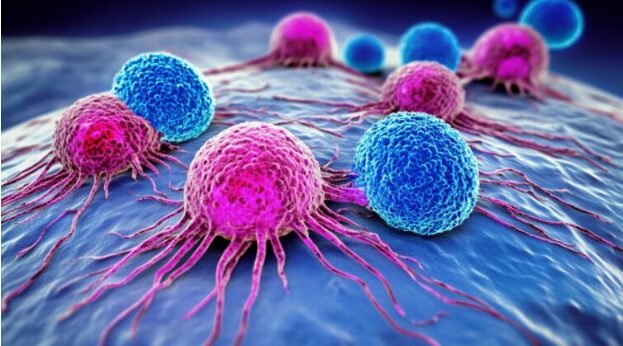Evaluating Immunotherapy Success Rates: Insights from the Latest Research

Immunotherapy has transformed cancer treatment, offering new avenues of hope for patients with advanced disease or limited options. By harnessing the body’s immune system to identify and destroy cancer cells, this revolutionary therapy has shown promise across various cancer types. Recent clinical trials and research studies provide valuable insights into the success rates of immunotherapy, revealing its potential, challenges, and future directions.
Understanding Immunotherapy Success Rates
Immunotherapy differs fundamentally from traditional cancer treatments. While chemotherapy and radiation attack cancer cells directly, immunotherapy trains the immune system to identify and attack malignant cells. This distinction often leads to more durable outcomes and fewer long-term side effects.
Key Success Rates for Cancer Immunotherapy
Success rates of immunotherapy are assessed using clinical measures such as Overall Response Rate (ORR), which shows the percentage of patients whose tumors shrink significantly, and Overall Survival (OS), which measures how long patients live after treatment initiation. Here are some notable examples:
- Non-Small Cell Lung Cancer (NSCLC): Patients with high PD-L1 expression treated with pembrolizumab achieved an ORR of 45% and a median OS of 30 months in clinical trials.
- Melanoma: The combination of nivolumab and ipilimumab showed an ORR of 58%, with long-term remission achieved in many cases.
- Bladder Cancer: Avelumab maintenance therapy post-chemotherapy demonstrated an ORR of 44%, with PFS extended to over 21 months in advanced cases.
These metrics illustrate how immunotherapy can significantly outperform traditional therapies in specific contexts. For example, in non-small cell lung cancer, traditional chemotherapy often achieves an ORR of around 30%, significantly lower than the 45% ORR seen with pembrolizumab in patients with high PD-L1 expression.
Key Insights from Clinical Trials
Over the past decade, clinical trials have provided substantial evidence supporting immunotherapy’s efficacy:
| Trial Name | Therapy Type | Cancer Type | Impact |
| KEYNOTE-024 | Pembrolizumab | NSCLC | Superior OS compared to chemotherapy |
| CheckMate 067 | Nivolumab + Ipilimumab | Advanced Melanoma | Long-term survival for metastatic patients |
| IMpower150 | Atezolizumab + Chemotherapy | Advanced NSCLC | Improved outcomes in combination therapy |
| JAVELIN Bladder 100 | Avelumab Maintenance | Advanced Bladder Cancer | High durability of response |
These trials showcase the potential of immunotherapy to redefine treatment standards for certain cancer types.
Immunotherapy has opened new possibilities for patients with advanced and previously untreatable cancers. At Biotherapy International, several success stories highlight the effectiveness of personalized approaches to this innovative treatment:
Case 1: Brain Cancer Treatment Success
A patient with advanced brain cancer experienced a period of remission following immunotherapy treatment, achieving a positive outcome even after conventional therapies proved ineffective.
Case 2: Prolonged Survival with Pancreatic Cancer
For a patient with advanced pancreatic cancer, immunotherapy helped significantly prolong survival. Tailored treatment protocols contributed to slowing disease progression and enhancing quality of life.
The takeaway: these examples demonstrate the potential of immunotherapy to improve outcomes in complex cases. While results vary, these success stories underline the importance of personalized and innovative treatment strategies in cancer care.
Managing Side Effects: A Necessary Focus
While immunotherapy generally has fewer side effects than chemotherapy, immune-related adverse events (irAEs) can still occur. These side effects arise from the immune system becoming overactive and attacking healthy tissues. Common irAEs include:
- Skin Reactions: Rash and itching are common and often manageable with topical treatments.
- Gastrointestinal Issues: Diarrhea and colitis can occur, sometimes requiring corticosteroids.
- Endocrine Disruptions: Conditions like hypothyroidism or adrenal insufficiency may require hormone replacement therapy.
- Organ Inflammation: Pneumonitis (lung inflammation) and hepatitis (liver inflammation) are rarer but potentially serious.
Effective management of these side effects involves early detection, supportive care, and sometimes halting treatment temporarily. Increasing awareness among patients and clinicians about these risks is crucial for improving treatment outcomes.
Cost and Accessibility of Immunotherapy
Immunotherapy’s potential to revolutionize cancer care is often tempered by its high cost. Treatments such as immune checkpoint inhibitors can cost over $100,000 annually, posing significant financial challenges for many patients. Access is further restricted in low- and middle-income countries, where healthcare infrastructure and resources are limited.
To improve affordability and accessibility, several initiatives are underway:
- Insurance Coverage: Efforts are being made to expand insurance policies to cover immunotherapy, reducing the financial burden on patients.
- Biosimilars: The introduction of biosimilars, which are less expensive alternatives to branded therapies, is helping to lower costs.
- Global Subsidies: Nonprofit organizations and healthcare alliances are working to provide subsidized treatments in underserved regions.
- Clinical Trials: Enrolling in clinical trials offers patients access to cutting-edge therapies at reduced or no cost while advancing medical research.
Addressing cost barriers is essential to ensure immunotherapy’s benefits are accessible to a broader population.
Future Directions and Ongoing Research
The future of immunotherapy lies in ongoing innovation and refinement. Current research is advancing several areas:
- Combination Therapies: Trials like CheckMate 227 are exploring combinations of checkpoint inhibitors with chemotherapy or radiation to improve efficacy and combat resistance.
- Neoantigen Vaccines: Personalized cancer vaccines are under development to target the specific mutations present in individual tumors, enabling highly tailored treatment strategies.
- Next-Generation Biomarkers: New biomarkers, such as T-cell receptor diversity and tumor microenvironment profiling, are improving patient selection and allowing for more precise predictions of treatment success.
- Bispecific Antibodies: These therapies are designed to link immune cells directly to tumor cells, enhancing immune activation and improving outcomes.
- CAR-T Cells in Solid Tumors: Engineering CAR-T cells to penetrate solid tumors more effectively while overcoming the suppressive tumor microenvironment remains a top priority in research.
These advancements have the potential to expand the range of cancers treatable with immunotherapy and improve outcomes for patients worldwide.
Cutting-edge therapies with significant potential: Bispecific antibodies link immune cells to hard-to-target tumor cells, addressing limitations of traditional monoclonal antibodies. Similarly, CAR-T cell advancements aim to improve tumor penetration and overcome immunosuppressive environments, offering promise for treating solid tumors.
Frequently Asked Questions (FAQ)
1. What types of cancer respond best to immunotherapy?
Cancers with high mutation rates, such as melanoma, lung cancer, bladder cancer, and certain types of lymphoma, tend to respond well to immunotherapy.
2. How long does it take to see results with immunotherapy?
Results vary. Some patients may see tumor shrinkage within weeks, while others may take several months to respond.
3. What are the common side effects of immunotherapy?
Common side effects include rash, diarrhea, fatigue, and inflammation of organs like the lungs or liver. Most side effects are manageable with prompt care.
4. How is immunotherapy different from chemotherapy?
Unlike chemotherapy, which attacks cancer cells directly, immunotherapy activates the immune system to recognize and destroy cancer cells. This often results in more durable responses and fewer systemic side effects.
5. Is immunotherapy affordable?
Immunotherapy can be expensive, but efforts such as insurance coverage expansion, biosimilars, and clinical trials aim to make it more accessible.
Conclusion: A New Era in Cancer Treatment
Immunotherapy has redefined cancer care, offering improved survival rates and durable remission for many patients. While challenges remain, advances in biomarker research, combination therapies, and personalized medicine continue to drive progress. As these therapies evolve, the promise of immunotherapy extends not only to curing cancer but also to improving the quality of life for millions of patients worldwide.
Immunotherapy represents a paradigm shift in cancer treatment—one rooted in innovation, personalization, and hope. As research continues to advance, the promise of immunotherapy grows stronger, offering millions of patients not just extended survival but a significantly improved quality of life.





